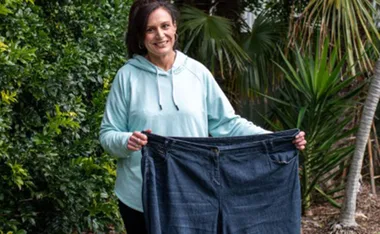Caring for two disabled daughters has been a 40-year commitment for Laurette and Ian Wade. But what happens when elderly parents become too frail to look after their children? Jane Worthington investigates.
Our daughter Jane was 10 when she started stumbling and was unable to walk a straight line,” recalls Laurette Wade.
Around the same time, Fiona, who is two years older, showed similar symptoms. The family were living in Guyra, near Armidale, in rural NSW, so it took many trips to Sydney and several years until one specialist finally delivered the devastating blow that both girls were suffering from a degenerative disease called Friedreich’s ataxia.
“Deterioration of their nervous systems meant our girls would slowly lose their muscle tone, speech and vision, while diabetes and cardiac problems would also probably strike. They would both eventually be confined to wheelchairs. The average life expectancy for those with the disease is 35. There is no cure.
“Delivering this news to two little girls was the most heartbreaking thing I have ever had to do. But my girls took it in their stride. They didn’t come home and cry in their rooms for weeks. They bravely accepted their disease and continue to be the amazing, determined and inspirational people they are today.”
Today Laurette, 72, and her husband, Ian, 73, still care for Jane, now 47, and Fiona, now 49. The couple are among the one in eight carers of Australia who dedicate their lives to looking after others.
Despite Ian recently having had a stroke, he continues to help Laurette care for Jane. Laurette wakes two or three times a night to painstakingly massage hard lumps in Jane’s body, and is also responsible for delivering her daily insulin injections.
“Now we have to use hoists and lifters to transfer Jane from the bed to the toilet or into the shower or car,” says Laurette. “This means her personal care routine in the morning can take two hours – more difficult now Jane is starting to lose her speech. And after Ian’s stroke, lifting the wheelchair into the car is a huge effort, and we can’t afford a vehicle that has wheelchair access.
“Fiona’s also wheelchair-bound, but living on her own with government-funded homecare help. Still, she faces a similar future to her sister.”
Laurette remains stoic despite the cards her family has been dealt.
“We get about six weeks of respite a year, but after that, it’s pretty much 24-hour care. The Guyra and Armidale community have really been ‘the little town that could’. They raise money to pay for any equipment the girls need, and over the years many have stayed here to help.
“We also try to be as upbeat as we can … but there are moments in the middle of the night when there is nothing I can do to ease Jane’s terrible aches. As a mother, this is indescribably painful.
“My biggest fear now is that when we are too old to care for the girls, they’ll have to go to an aged nursing home. Despite their razor-sharp minds, they’d spend the rest of their young lives with people who have dementia and are twice their age.
“That is my challenge to the government: Find somewhere for our girls to live, so I can live my final decades in peace. As far as I know, there is only one dedicated young person’s permanent respite, in Brisbane. Jane and Fiona deserve to spend the rest of their days with dignity.”
To help the Wade family, donate to the Wade Equipment Appeal by calling New England Credit Union on 132 067.
See ‘Mother Love’, a play inspired by Laurette’s battle, Oct 14-24 at Gasworks Arts Park, Albert Park, Melbourne. Call (03) 9699 3253 or visit www.gasworks.org.au










